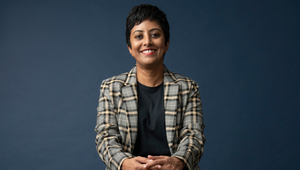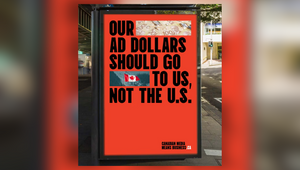
The Democratisation of Diwali

What was once a strictly religious occasion rooted in Indian mythology, Diwali, Festival of Lights, is now estimated to be celebrated by over one billion people of different faiths and cultures across the globe. Symbolising light over darkness and good over evil, communities worldwide come together at this time of year to embrace its traditions of lighting lamps, exchanging gifts and feasting on traditional food with loved ones.
With countries such as Nepal, Singapore, Sri Lanka, Malaysia, Thailand, UK, US, Canada and more holding public parties, lighting up iconic landmarks and offering themed products and services to mark the occasion, it is clear that Diwali’s status has fast grown to become a widely inclusive event.
Unsurprisingly, this can, in part, be attributed to the rise of technology, with social media increasing visibility and awareness of the festival, and virtual platforms enabling people to celebrate from afar.
Charlie Blower, co-founder and managing partner of Blak Labs says: “Over the years, Singaporeans have become increasingly aware of Deepavali (Diwali) and its cultural significance with celebrations going beyond homes and temples to light up social media feeds and digital platforms. Once somewhat overshadowed by the upcoming Christmas celebrations, the festival has gained significant visibility, allowing it to take its rightful place as an important part of Singapore’s vibrant cultural calendar.”
Embraced by the masses, Diwali is represented in global media, from TV and film to advertising, with giants such as Coca-Cola, PepsiCo, Google and Amazon launching Diwali-themed campaigns every year. Having become a key commercial opportunity, brands and retailers worldwide are increasingly offering limited-edition products and huge discounts to align with the festival’s celebrations, from IKEA holding Diwali craft workshops and offering Indian food on its menu, to Amazon and Flipkart’s mega sales events.

“This year, Shangri-La Singapore has crafted a curated box of mithai (Indian sweets) that not only pays homage to the traditional treat but elevates them to something enviable, both in sight and taste,” Charlie shares. “Brands like Grab and Deliveroo have made festive dining more accessible by offering deals or offers on Indian cuisine. Further afield in New Zealand, my old colleague Craig Love and his team at Auckland Transport have decorated a bus which is charming.”
“For a bus wrap, it’s getting a lot of attention!” Craig says. “It got several minutes on a weekly soft news/magazine show here and the local Indian community is very positive. We’re told this is the most positive public reaction to anything we’ve done in years.”

Over in Canada, Food Basics will be bringing an innovative drone show to Ottawa’s Capital Diwali Mela Event this year, in answer to a regional fireworks ban. The show will feature a dazzling display of culturally relevant imagery for the 500 Ottawans expected to join the festivities. The event not only honours the tradition of celebrating light but also makes for a more climate friendly Diwali in line with modern times.
What Consumers Want
In India alone, last year’s lead up to Diwali saw retailers receive an online sales increase of 26% (on average) during early October and rose to 72% two days before the event – according to data from over 20 million online transactions, collected by commerce media platform, Criteo. Interestingly, the findings show that consumers begin browsing products, on average, 18.3 days before they make a purchase during Diwali’s peak period.
Monks India senior vice president, client services, Atif Rahman states that “like everything else, Diwali has become more commercialised with more purchasing power. Diwali is a post-harvest festival. It celebrates prosperity and abundance. This core part of the festival will never be lost and people will keep modernising this kernel.
“Consumers are starting to prepare for Diwali much earlier than before and although many purchases are planned, there's also an element of impulse. Consumers know that deals will be better during the festive period.”
Criteo highlights that marketers should aim to capture shoppers’ attention early with promotions and discounts, use retargeting to remind them to purchase, and incorporate flash sales and limited offers to shorten the path to purchase.
“While the marketer is looking to form an emotional bond with the consumer through the festive spirit of the stories they tell, consumers are primarily looking to latch onto cultural affiliation, convenience or a unique experience,” Atif concludes.
Diwali in the Modern Day
Whether addressing gender roles, new ways of celebrating, or incorporating modern technology to aid convenience, this year’s campaigns demonstrate how modern-day Diwali is evolving from tradition.
“The man’s role was traditionally seen as a gifter or facilitator while the woman’s role was the organiser,” states Arpan Bhattacharyya, executive director – head of creative, copy (South) at Lowe Lintas. “That isn’t as much the case anymore. As with most things, advertising is a mirror of the society it resides in and good Diwali advertising usually manages to steer clear of stereotypes and appeal to the modern consumer.”
Josy Paul, chairman and CCO at BBDO India, adds: “Heightened awareness and empathy are leading to greater sensitivity. For example, it’s great to see brands involving the entire household in the preparations that go before Diwali. We are seeing a shift in traditional roles and there’s a lot more equality and inclusion in how brands are communicating.”
Speaking on Starbucks’ ‘#MeriSpecialJagah’ campaign that sees a mother escape kitchen duties in favour of enjoying a Diwali outside of home, Edelman India’s ECD, Ashish Pathak says: “We needed to find a bridge that connected the brand’s values and unique take on traditional Diwali food and beverages, with a reason for consumers to step out of their homes and experience the festival in a new way. So we dived right into local culture and found the truism of unannounced guests during festive seasons being common across India. As a result, mums often get caught up in the kitchen and miss out on celebrating fully with their families. That insight helped us shape a narrative that highlighted the gender stereotypes that still exist, and brought in the brand as the catalyst of change.”
Binaifer Dulani, founding partner and creative at Talented notes: “Brands used to fan feminine pride by portraying the role of women in creating perfect Diwalis. But today, female audiences are not responding to societal expectations that show them as mythical creatures who can do everything, all at once. Today, more brands are focused on mirroring the inner dialogue of women, as they reconcile with the idea that their worth doesn’t depend on the societal expectations from them, and we’re seeing narratives that urge women to participate in the celebrations rather than only be the makers of the celebrations, behind the scenes.”
In this way, it seems that Diwali has not only extended its borders around the world, but has expanded its accessibility within individual homes too, bringing the celebration to everyone in a more equal way.
According to McCann Worldgroup’s national planning director, Ankit Vohra, “The definition of diversity is expanding even beyond gender and class. Family-centric narratives are being replaced by friends-centric. Materialistic consumption is shifting to conscious gifting. Traditions are being stretched and re-interpreted to modern times.”
“India is a different country today than when I was growing up,” he continues. “We have adopted a lot of new technology – social media, online shopping, digital transactions – and that has changed us as consumers. This shows in our celebrations too from digital invites and virtual parties to online purchases and last-minute festivities enabled by quick-commerce, personalised gifting, deal hunting and influencer-suggested themes. Brands preserve the essence of the festival (family, light, joy, and togetherness) while incorporating sustainability, personalisation and digital experiences to resonate with today’s conscious consumers.”
For Google Shopping’s 2024 Diwali campaign, the platform is reimagined as a traditional Diwali mela. Starring Farida Jalal, the spot sees a granddaughter bring the mela shopping experience in virtual form to her grandmother, highlighting the incredible convenience of Google Shopping. In a press release, MullenLowe Lintas Group’s chief operating officer, Naveen Gaur said: “We’re not just promoting the shopping on Google; we’re shaping the future of shopping and making it more accessible, enjoyable and providing exceptional value with better deals for everyone.”
A Note to Brands
As Diwali has grown into a highly commercialised, worldwide event, brands are faced with both opportunity and challenge. On the one hand, it’s a chance to tap into a rapidly growing consumer base. On the other, there’s the competition to stand out among the increasing crowd of competitors.
On this, Abhinit Agarwal, executive strategy director at TBWA\Singapore, has some notes to share. “Every Diwali, we encounter many cliched and predictable stories around goodness and family bonding. But Diwali can also be a popular time for brands to break societal stereotypes and be the harbinger of new beginnings.”
Take Indian clothes brand Sabhyata who took a stand for new mothers this year, “striking the right emotional chord by nudging the corporate world to make work environments more empathetic and supportive.”
And if you want to stand out, Abhinit suggests playfulness and humour: “Playful exaggeration can not only make your campaign noticeable but also evoke brand love. Zomato food delivery app did this well by embarking on a mission impossible to light up India so that the country is visible from outer space, while online grocery delivery app, Zepto hit all the right humour notes with a mockumentary style ad to spearhead the comeback of the rather ignored and old-fashioned Indian sweet, soan papdi.”
The final thought comes from Josy: “The more we modernise Diwali celebrations, the more people feel the need to reconnect with tradition. Sometimes evolution is revolution. You revolve and go back to where you came from – your roots, your past practices, your OG value systems. The modernity is in the way we communicate, the new mediums and the changing language of the younger generations. But tradition will always be at the heart and soul of the Diwali experience.”















